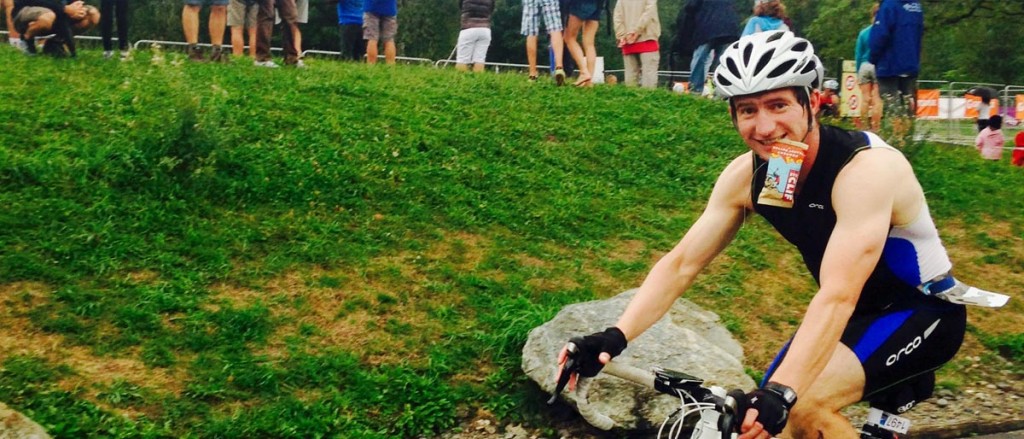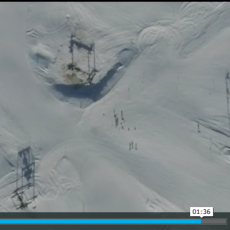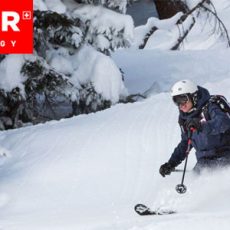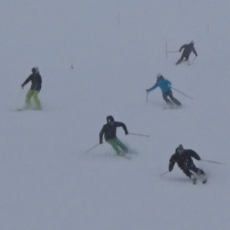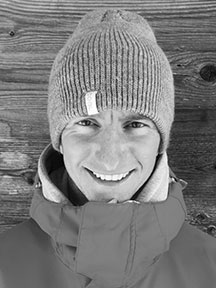
Eating healthily and skiing don’t always go together, so Jake casts a pragmatic eye over what we should (and shouldn’t) be eating.
How many calories will you burn whilst skiing? This depends on a multitude of factors including your age, weight, gender and how hard you ski.
It’s difficult to be exact.
Roughly, a skier will burn 300 – 500 calories per hour. The website myfitnesspal.com tells me that over a ‘light effort’ 6 hour day I will burn 2000 calories from skiing. If I have a more ‘vigorous’ day on the slopes e.g. racing or skiing powder I’ll burn over 3000.
Weather conditions will make a difference too – if it’s really cold you use more energy to stay warm and maintain a healthy body temperature so that essential reactions can continue to take place in the body.
‘Oh great, so I can eat and drink whatever I want then when I’m skiing…!?’
NO WAY!
Skiing requires lots of energy so it’s important we eat the right things. Choosing what to eat and when to eat it is key. Our bodies need good quality food so that they can function properly. If you don’t eat and drink well then you won’t have much energy, your reactions and skiing will be slow and lethargic, and you won’t get nearly as much out of the day compared to if you fuel up on the right things!
Breakfast
Before going skiing always, always have breakfast – in fact, always to do this, it’s the most important meal of the day! A meal that has a good mix of carbohydrate and protein is ideal. Think eggs on toast or yoghurt, porridge, oatmeal with fruit and nuts. This will kick start your metabolism and give you lots of energy for the morning. You should drink lots of water to stay hydrated.
Stay away from excessively sugary foods like cereal, donuts and other pastries. You might get an energy high for 30 minutes but you’ll soon suffer a sugar crash, become tired and hungry. Exactly the opposite of what you’re trying to do!
Snacks
This is tricky. Ideally you want something that is not too high in sugar (see above for reasons) and has a balance of carbohydrate for energy and protein for muscle repair. There are lots of recipes out there for these but who has time to make a snack for skiing?
Cereal bars seem like a good option however a lot of these ‘healthy’ bars are loaded with sugar. Some are ok though, Clif bars are good, trail mix (dried fruit and nuts) is a winner and if you have to stop for a drink go for hot chocolate (more on this later).
Lunch
You definitely want to eat lunch but try and keep it fairly light. Tempting as it is, going for burgers or fried food will do you no good in a lot of ways but especially for providing energy for the rest of the day. Eat this and you will feel slow and lethargic once you get back on your skis. Instead go for a more balanced option of carbs, protein and healthy fat: for example pasta, rice, baked potatoes, vegetables. sandwiches, chicken, red meat, fish. Again drink lots of water!
Apres ski
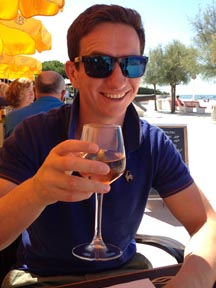
Er…you are on holiday so having a few drinks after skiing to celebrate a great day is vital! It’s when it carries on that the problem begins. Alcohol slows down your metabolism. Once it is consumed it becomes the liver’s number one priority to get rid of so it has less time to do other stuff like make sure your body runs efficiently and recovers from the stress of skiing.
After you’ve finished skiing it’s a good idea to drink lots of water and of course eat something to start the recovery process.
TOP TIP!
After skiing have a glass of chocolate milk. I am not joking. The carbohydrate and protein ratio is perfect for starting to replenish energy levels and repair damaged muscles.
Dinner
You guessed it. A balanced meal of carbohydrate, protein and fat: examples of this are pasta, rice, potatoes, vegetables, chicken, red meat, fish, cheese, olive oil, butter. Drink lots of water to rehydrate.
Sleep
Now it’s up to you. If you want to get the most from your skiing then a late night with lots of alcohol will prevent any recovery from a long day’s skiing. The secret to a good recovery is to eat and drink well but also to ensure you get at least 7 hours of sleep. This is when your body will regenerate and repair. If you let it that is…
Level 3 REPS personal trainer
Level 4 BASI ski instructor

